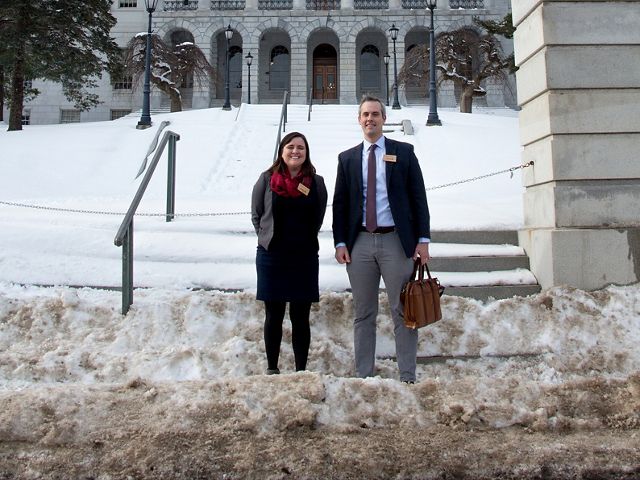[{"title":"The Future Forest: The Appalachians face multiple threats. Scientists are working to boost their adaptability.","description":"The Appalachian landscape is a diverse, steadfast refuge for wildlife, but the world around it is changing. Scientists are researching how to make these woods more adaptable—and resilient—than ever.","link":"https://stage.nature.org/en-us/magazine/magazine-articles/climate-change-resilient-forests-appalachians/","target":"_self","desktopImageCrop":"left-top","mobileImageCrop":"center-middle","pageImageAlt":"An illustration shows birds, insects and leaves swirling around a tree trunk.","articleDate":"Feb 05, 2025","contentTypeTag":"Magazine Feature","geoLocationTag":["Tennessee","United States","Massachusetts","Kentucky","Pennsylvania","New York","North Carolina","Maine","Connecticut","Vermont","New Jersey","Virginia","Georgia","Alabama","Maryland and D.C.","West Virginia","New Hampshire"],"topicTag":["forest conservation","conservation work","forest restoration","habitat restoration","forestry","life science","science"],"placesWeProtectTag":[],"businesstags":["Magazine"],"businesstags_ids":["tnc:business-group/magazine"],"pageImage":{}},{"title":"An Island Returns","description":"How TNC Maine’s first land return experience is strengthening partnerships and conservation outcomes.","link":"https://stage.nature.org/en-us/about-us/where-we-work/united-states/maine/stories-in-maine/land-return/","target":"_self","desktopImageCrop":"center-middle","mobileImageCrop":"center-middle","pageImageAlt":"Trees and sky reflected onto the water at Kuwesuwi Monihq (Pine Island) in Maine.","articleDate":"Jan 26, 2025","articleAuthor":["Mark Berry"],"contentTypeTag":"Conservation Update","geoLocationTag":["Maine","United States"],"topicTag":["indigenous stewardship","conservation work","islands","land conservation","indigenous partners","partners"],"placesWeProtectTag":[],"businesstags":["Maine","United States"],"businesstags_ids":["tnc:business-group/united-states/maine","tnc:business-group/united-states"],"pageImage":{}},{"title":"Trees in Peril","description":"This visual story shows the threats facing North America's ash, elm, hemlock and beech trees and the urgent efforts to save them from invasive pests and pathogens.","link":"https://stage.nature.org/en-us/what-we-do/our-priorities/tackle-climate-change/climate-change-stories/trees-in-peril/","target":"_self","desktopImageCrop":"center-middle","mobileImageCrop":"center-middle","pageImageAlt":"Sunlight filters through the high, towering branches of dead tall Eastern hemlock in a New York forest.","articleDate":"Feb 15, 2024","contentTypeTag":"Photo Essay","geoLocationTag":["Connecticut","United States","Massachusetts","Ohio","Vermont","Pennsylvania","New York","New Hampshire","Maine"],"topicTag":["invasive animals","invasive species","Species","tree planting","forest conservation","conservation work","forests","land conservation","trees","plants","natural climate solutions","climate change"],"placesWeProtectTag":[],"businesstags":["Protect Land and Water","Our Priorities"],"businesstags_ids":["tnc:business-group/our-priorities/protect-land-water","tnc:business-group/our-priorities"],"pageImage":{}},{"title":"Rivers Reborn: Alewives Fish Make a Recovery in Maine","description":"Alewives fish are continuing to make a remarkable recovery in Maine. The Infrastructure Investment and Jobs Act is helping to reconnect and restore fish passages in the Penobscot river and watershed. ","link":"https://stage.nature.org/en-us/what-we-do/our-priorities/protect-water-and-land/land-and-water-stories/iija-river-restoration-maine/","target":"_self","desktopImageCrop":"center-middle","mobileImageCrop":"center-middle","pageImageAlt":"School of alewife fish. ","articleDate":"Feb 12, 2024","contentTypeTag":"Feature","geoLocationTag":["Maine","United States"],"topicTag":["river restoration","habitat restoration","conservation work","policy","rivers","water conservation","fish","animals","Species"],"placesWeProtectTag":[],"businesstags":["US Policy","Policy"],"businesstags_ids":["tnc:business-group/policy/us-policy","tnc:business-group/policy"],"pageImage":{"small":"https://natureconservancystage-h.assetsadobe.com/is/image/content/dam/tnc/nature/en/photos/FishwayAlewivesBEdmonds.jpg?crop=0%2C149%2C1200%2C900&wid=300&hei=225&scl=4.0","default":"https://natureconservancystage-h.assetsadobe.com/is/image/content/dam/tnc/nature/en/photos/FishwayAlewivesBEdmonds.jpg?crop=0%2C149%2C1200%2C900&wid=300&hei=225&scl=4.0","medium2x":"https://natureconservancystage-h.assetsadobe.com/is/image/content/dam/tnc/nature/en/photos/FishwayAlewivesBEdmonds.jpg?crop=0%2C149%2C1200%2C900&wid=800&hei=600&scl=1.5","large":"https://natureconservancystage-h.assetsadobe.com/is/image/content/dam/tnc/nature/en/photos/FishwayAlewivesBEdmonds.jpg?crop=0%2C149%2C1200%2C900&wid=800&hei=600&scl=1.5","small2x":"https://natureconservancystage-h.assetsadobe.com/is/image/content/dam/tnc/nature/en/photos/FishwayAlewivesBEdmonds.jpg?crop=0%2C149%2C1200%2C900&wid=600&hei=450&scl=2.0","medium":"https://natureconservancystage-h.assetsadobe.com/is/image/content/dam/tnc/nature/en/photos/FishwayAlewivesBEdmonds.jpg?crop=0%2C149%2C1200%2C900&wid=800&hei=600&scl=1.5","large2x":"https://natureconservancystage-h.assetsadobe.com/is/image/content/dam/tnc/nature/en/photos/FishwayAlewivesBEdmonds.jpg?crop=0%2C149%2C1200%2C900&wid=1600&hei=1200&scl=0.75"}},{"title":"Restoring the Penobscot River","description":"An unprecedented and innovative effort to restore a Maine river.","link":"https://stage.nature.org/en-us/about-us/where-we-work/united-states/maine/stories-in-maine/restoring-the-penobscot-river/","target":"_self","hideArticleDate":"true","desktopImageCrop":"left-bottom","mobileImageCrop":"left-bottom","pageImageAlt":"Canoe paddlers cross a quiet Penobscot River.","articleDate":"Oct 19, 2023","contentTypeTag":"Success","geoLocationTag":["Maine","United States"],"topicTag":["dam removal","river restoration","habitat restoration","conservation work"],"placesWeProtectTag":[],"businesstags":["Maine","United States"],"businesstags_ids":["tnc:business-group/united-states/maine","tnc:business-group/united-states"],"pageImage":{}},{"title":"The Healing Power of Trees","description":"An innovative partnership connects vulnerable youth with the natural world.","link":"https://stage.nature.org/en-us/about-us/where-we-work/united-states/maine/stories-in-maine/tree-street-partnership/","target":"_self","desktopImageCrop":"center-middle","mobileImageCrop":"center-middle","pageImageAlt":"A group of people work together to install posts in a grassy area.","articleDate":"Sep 20, 2023","contentTypeTag":"Feature","geoLocationTag":["Maine","United States"],"topicTag":["local communities","community conservation","conservation work"],"placesWeProtectTag":[],"businesstags":["Maine","United States"],"businesstags_ids":["tnc:business-group/united-states/maine","tnc:business-group/united-states"],"pageImage":{}},{"title":"A Unique Fellowship Exemplifies Maine’s Global Impact","description":"A Mongolian forestry specialist learns about carbon programs from experts at The Nature Conservancy.","link":"https://stage.nature.org/en-us/about-us/where-we-work/united-states/maine/stories-in-maine/mongolia-fellowship/","target":"_self","desktopImageCrop":"center-middle","mobileImageCrop":"center-middle","pageImageAlt":"Marla Ganbat poses in front of a Maine lighthouse.","articleDate":"Jul 21, 2023","contentTypeTag":"Feature","geoLocationTag":["Maine","United States"],"topicTag":["forest carbon","carbon","climate change","conservation work","conservation funding","conservation finance"],"placesWeProtectTag":[],"businesstags":["Maine","United States"],"businesstags_ids":["tnc:business-group/united-states/maine","tnc:business-group/united-states"],"pageImage":{"small":"https://natureconservancystage-h.assetsadobe.com/is/image/content/dam/tnc/nature/en/photos/m/a/Marla-1.jpg","default":"https://natureconservancystage-h.assetsadobe.com/is/image/content/dam/tnc/nature/en/photos/m/a/Marla-1.jpg","medium2x":"https://natureconservancystage-h.assetsadobe.com/is/image/content/dam/tnc/nature/en/photos/m/a/Marla-1.jpg","large":"https://natureconservancystage-h.assetsadobe.com/is/image/content/dam/tnc/nature/en/photos/m/a/Marla-1.jpg","small2x":"https://natureconservancystage-h.assetsadobe.com/is/image/content/dam/tnc/nature/en/photos/m/a/Marla-1.jpg","medium":"https://natureconservancystage-h.assetsadobe.com/is/image/content/dam/tnc/nature/en/photos/m/a/Marla-1.jpg","large2x":"https://natureconservancystage-h.assetsadobe.com/is/image/content/dam/tnc/nature/en/photos/m/a/Marla-1.jpg"}},{"title":"Walking in Rachel Carson's Footsteps","description":"Rachel Carson, famed biologist, author and visionary, was a founding member of The Nature Conservancy in Maine. We continue her tradition of science-based conservation.","link":"https://stage.nature.org/en-us/about-us/where-we-work/united-states/maine/stories-in-maine/the-nature-conservancy-in-maine-rachel-carson-walking-in-her-footsteps/","target":"_self","desktopImageCrop":"center-middle","mobileImageCrop":"center-middle","pageImageAlt":"Biologist and author Rachel Carson stands seaside, examining specimen in a jar.","articleDate":"Jun 30, 2023","contentTypeTag":"Feature","geoLocationTag":["Maine","United States"],"topicTag":["activism","individual actions","activities","stories","women in science","science","conservation work","women and nature"],"placesWeProtectTag":["Rachel Carson NWR","Nature Preserves","Rachel Carson Salt Pond Preserve"],"businesstags":["Maine","United States"],"businesstags_ids":["tnc:business-group/united-states/maine","tnc:business-group/united-states"],"pageImage":{"small":"https://natureconservancystage-h.assetsadobe.com/is/image/content/dam/tnc/nature/en/photos/r/a/Rachel-Carson.jpg?crop=0%2C1128%2C2970%2C2227&wid=300&hei=225&scl=9.9","default":"https://natureconservancystage-h.assetsadobe.com/is/image/content/dam/tnc/nature/en/photos/r/a/Rachel-Carson.jpg?crop=0%2C1128%2C2970%2C2227&wid=300&hei=225&scl=9.9","medium2x":"https://natureconservancystage-h.assetsadobe.com/is/image/content/dam/tnc/nature/en/photos/r/a/Rachel-Carson.jpg?crop=0%2C1128%2C2970%2C2227&wid=800&hei=600&scl=3.7125","large":"https://natureconservancystage-h.assetsadobe.com/is/image/content/dam/tnc/nature/en/photos/r/a/Rachel-Carson.jpg?crop=0%2C1128%2C2970%2C2227&wid=800&hei=600&scl=3.7125","small2x":"https://natureconservancystage-h.assetsadobe.com/is/image/content/dam/tnc/nature/en/photos/r/a/Rachel-Carson.jpg?crop=0%2C1128%2C2970%2C2227&wid=600&hei=450&scl=4.95","medium":"https://natureconservancystage-h.assetsadobe.com/is/image/content/dam/tnc/nature/en/photos/r/a/Rachel-Carson.jpg?crop=0%2C1128%2C2970%2C2227&wid=800&hei=600&scl=3.7125","large2x":"https://natureconservancystage-h.assetsadobe.com/is/image/content/dam/tnc/nature/en/photos/r/a/Rachel-Carson.jpg?crop=0%2C1128%2C2970%2C2227&wid=1600&hei=1200&scl=1.85625"}},{"title":"Conservation on the Half Shell","description":"Working with oysters—and oyster growers—to counter the effects of climate change.","link":"https://stage.nature.org/en-us/about-us/where-we-work/united-states/maine/stories-in-maine/oysters-at-the-basin/","target":"_self","desktopImageCrop":"center-middle","mobileImageCrop":"center-middle","pageImageAlt":"Two women dump oysters out of a crate into the water from a boat.","articleDate":"Apr 22, 2023","contentTypeTag":"Conservation Update","geoLocationTag":["Maine","United States"],"topicTag":["oyster restoration","habitat restoration","conservation work","aquaculture","sustainable fisheries","fisheries"],"placesWeProtectTag":["KEP New Meadows River Basin Preserve","Nature Preserves"],"businesstags":["Maine","United States"],"businesstags_ids":["tnc:business-group/united-states/maine","tnc:business-group/united-states"],"pageImage":{}},{"title":"What Birds Can Tell Us About Conservation","description":"A TNC volunteer and a Kenyan student are applying a novel approach to measuring river health.","link":"https://stage.nature.org/en-us/about-us/where-we-work/united-states/maine/stories-in-maine/birds-measuring-river-health/","target":"_self","desktopImageCrop":"center-middle","mobileImageCrop":"center-middle","pageImageAlt":"A yellow-colored bird sips nectar from a flower.","articleDate":"Dec 07, 2022","contentTypeTag":"Initiative","geoLocationTag":["Maine","United States","Kenya","Africa"],"topicTag":["river restoration","habitat restoration","conservation work","science","birds","animals","Species"],"placesWeProtectTag":[],"businesstags":["Maine","United States"],"businesstags_ids":["tnc:business-group/united-states/maine","tnc:business-group/united-states"],"pageImage":{"small":"https://natureconservancystage-h.assetsadobe.com/is/image/content/dam/tnc/nature/en/photos/b/r/bronze-sunbird.Jpg?crop=159%2C0%2C2553%2C1915&wid=300&hei=225&scl=8.511111111111111","default":"https://natureconservancystage-h.assetsadobe.com/is/image/content/dam/tnc/nature/en/photos/b/r/bronze-sunbird.Jpg?crop=159%2C0%2C2553%2C1915&wid=300&hei=225&scl=8.511111111111111","medium2x":"https://natureconservancystage-h.assetsadobe.com/is/image/content/dam/tnc/nature/en/photos/b/r/bronze-sunbird.Jpg?crop=159%2C0%2C2553%2C1915&wid=800&hei=600&scl=3.191666666666667","large":"https://natureconservancystage-h.assetsadobe.com/is/image/content/dam/tnc/nature/en/photos/b/r/bronze-sunbird.Jpg?crop=159%2C0%2C2553%2C1915&wid=800&hei=600&scl=3.191666666666667","small2x":"https://natureconservancystage-h.assetsadobe.com/is/image/content/dam/tnc/nature/en/photos/b/r/bronze-sunbird.Jpg?crop=159%2C0%2C2553%2C1915&wid=600&hei=450&scl=4.2555555555555555","medium":"https://natureconservancystage-h.assetsadobe.com/is/image/content/dam/tnc/nature/en/photos/b/r/bronze-sunbird.Jpg?crop=159%2C0%2C2553%2C1915&wid=800&hei=600&scl=3.191666666666667","large2x":"https://natureconservancystage-h.assetsadobe.com/is/image/content/dam/tnc/nature/en/photos/b/r/bronze-sunbird.Jpg?crop=159%2C0%2C2553%2C1915&wid=1600&hei=1200&scl=1.5958333333333334"}},{"title":"Strengthening Conservation through Growth and Sharing","description":"A TNC staff enrichment program expands Maine’s conservation skill and know-how to a global scale.","link":"https://stage.nature.org/en-us/about-us/where-we-work/united-states/maine/stories-in-maine/coda-fellowship-impact/","target":"_self","desktopImageCrop":"center-middle","mobileImageCrop":"center-middle","pageImageAlt":"Bushes with birds are seen with a large city in the background.","articleDate":"Aug 17, 2022","contentTypeTag":"Feature","geoLocationTag":["Maine","United States","Hong Kong","Asia Pacific","New Zealand"],"topicTag":["carbon sequestration","carbon","climate change","conservation work","indigenous stewardship","coastal resilience"],"placesWeProtectTag":[],"businesstags":["Maine","United States"],"businesstags_ids":["tnc:business-group/united-states/maine","tnc:business-group/united-states"],"pageImage":{}},{"title":"Getting Smarter about Solar Siting","description":"New analysis brings a conservation mindset to renewable energy development.","link":"https://stage.nature.org/en-us/about-us/where-we-work/united-states/maine/stories-in-maine/smart-solar-siting/","target":"_self","desktopImageCrop":"center-middle","mobileImageCrop":"center-middle","pageImageAlt":"View of solar array surrounded by forest trees.","articleDate":"Aug 16, 2022","contentTypeTag":"Feature","geoLocationTag":["Maine","United States"],"topicTag":["reduced deforestation","climate change","conservation work","solar power","energy","natural climate solutions","forest carbon","carbon"],"placesWeProtectTag":[],"businesstags":["Maine","United States"],"businesstags_ids":["tnc:business-group/united-states/maine","tnc:business-group/united-states"],"pageImage":{}},{"title":"Conserving Forests to Benefit Wildlife and People","description":"TNC is using science to identify and conserve habitats that can withstand climate impacts.","link":"https://stage.nature.org/en-us/about-us/where-we-work/united-states/maine/stories-in-maine/climate-forests-strategy/","target":"_self","hideArticleDate":"true","desktopImageCrop":"center-middle","mobileImageCrop":"center-middle","pageImageAlt":"An expanse of green forest leads to tree-covered mountains.","articleDate":"Jul 21, 2022","contentTypeTag":"Initiative","geoLocationTag":["Maine","United States"],"topicTag":["climate change","conservation work","forest conservation"],"placesWeProtectTag":[],"businesstags":["Maine","United States"],"businesstags_ids":["tnc:business-group/united-states/maine","tnc:business-group/united-states"],"pageImage":{}},{"title":"Curbing Carbon Through Policy and Practice","description":"Realizing effective and lasting solutions to climate change and its effects requires policies based on sound science.","link":"https://stage.nature.org/en-us/about-us/where-we-work/united-states/maine/stories-in-maine/climate-air-strategy/","target":"_self","desktopImageCrop":"center-middle","mobileImageCrop":"center-middle","pageImageAlt":"A view of the Maine statehouse from a surrounding hill.","articleDate":"Jul 21, 2022","contentTypeTag":"Initiative","geoLocationTag":["Maine","United States"],"topicTag":["climate policy","climate change","conservation work"],"placesWeProtectTag":[],"businesstags":["Maine","United States"],"businesstags_ids":["tnc:business-group/united-states/maine","tnc:business-group/united-states"],"pageImage":{}},{"title":"Fostering the Flow Between Land and Sea","description":"In Maine, TNC is pioneering unique strategies to address the effects of climate change through reconnecting rivers and waterways.","link":"https://stage.nature.org/en-us/about-us/where-we-work/united-states/maine/stories-in-maine/climate-rivers-strategy/","target":"_self","desktopImageCrop":"center-middle","mobileImageCrop":"center-middle","pageImageAlt":"Underwater view of a school of fish swimming in a current.","articleDate":"Jul 21, 2022","contentTypeTag":"Initiative","geoLocationTag":["Maine","United States"],"topicTag":["climate change","conservation work","river restoration","habitat restoration"],"placesWeProtectTag":[],"businesstags":["Maine","United States"],"businesstags_ids":["tnc:business-group/united-states/maine","tnc:business-group/united-states"],"pageImage":{"small":"https://natureconservancystage-h.assetsadobe.com/is/image/content/dam/tnc/nature/en/photos/FishwayAlewivesBEdmonds.jpg?crop=0%2C149%2C1200%2C900&wid=300&hei=225&scl=4.0","default":"https://natureconservancystage-h.assetsadobe.com/is/image/content/dam/tnc/nature/en/photos/FishwayAlewivesBEdmonds.jpg?crop=0%2C149%2C1200%2C900&wid=300&hei=225&scl=4.0","medium2x":"https://natureconservancystage-h.assetsadobe.com/is/image/content/dam/tnc/nature/en/photos/FishwayAlewivesBEdmonds.jpg?crop=0%2C149%2C1200%2C900&wid=800&hei=600&scl=1.5","large":"https://natureconservancystage-h.assetsadobe.com/is/image/content/dam/tnc/nature/en/photos/FishwayAlewivesBEdmonds.jpg?crop=0%2C149%2C1200%2C900&wid=800&hei=600&scl=1.5","small2x":"https://natureconservancystage-h.assetsadobe.com/is/image/content/dam/tnc/nature/en/photos/FishwayAlewivesBEdmonds.jpg?crop=0%2C149%2C1200%2C900&wid=600&hei=450&scl=2.0","medium":"https://natureconservancystage-h.assetsadobe.com/is/image/content/dam/tnc/nature/en/photos/FishwayAlewivesBEdmonds.jpg?crop=0%2C149%2C1200%2C900&wid=800&hei=600&scl=1.5","large2x":"https://natureconservancystage-h.assetsadobe.com/is/image/content/dam/tnc/nature/en/photos/FishwayAlewivesBEdmonds.jpg?crop=0%2C149%2C1200%2C900&wid=1600&hei=1200&scl=0.75"}},{"title":"Working with Partners to Improve Fishery Management","description":"TNC has been working with fishermen, other nonprofits, and state and Federal agencies on an approach designed to help this ecosystem avoid further decline and keep the fishing way of life intact.","link":"https://stage.nature.org/en-us/about-us/where-we-work/united-states/maine/stories-in-maine/climate-ocean-strategy/","target":"_self","hideArticleDate":"true","desktopImageCrop":"center-middle","mobileImageCrop":"center-middle","pageImageAlt":"A man on a boat throws a fish into a bin.","articleDate":"Jul 21, 2022","contentTypeTag":"Initiative","geoLocationTag":["Maine","United States"],"topicTag":["ocean conservation","conservation work","climate change"],"placesWeProtectTag":[],"businesstags":["Maine","United States"],"businesstags_ids":["tnc:business-group/united-states/maine","tnc:business-group/united-states"],"pageImage":{}},{"title":"Planning with Partners to Face the Future","description":"Sustainable solutions to the effects of climate change must address the needs of both natural and human communities.","link":"https://stage.nature.org/en-us/about-us/where-we-work/united-states/maine/stories-in-maine/climate-community-strategy/","target":"_self","desktopImageCrop":"center-bottom","mobileImageCrop":"center-bottom","pageImageAlt":"Overhead view of four young people looking at species in a tray on the ground.","articleDate":"Jul 21, 2022","contentTypeTag":"Initiative","geoLocationTag":["Maine","United States"],"topicTag":["climate change","conservation work","community conservation"],"placesWeProtectTag":[],"businesstags":["Maine","United States"],"businesstags_ids":["tnc:business-group/united-states/maine","tnc:business-group/united-states"],"pageImage":{}},{"title":"Meet Felipe Edwards","description":"Meet journalist, TNC trustee and Legacy Club member Felipe Edwards and learn why he was inspired to join TNC.","link":"https://stage.nature.org/en-us/membership-and-giving/donate-to-our-mission/gift-and-estate-planning/meet-our-donors/meet-felipe-edwards/","target":"_self","desktopImageCrop":"left-bottom","mobileImageCrop":"left-bottom","pageImageAlt":"Felipe Edwards","articleDate":"Jul 19, 2022","contentTypeTag":"Donor Story","geoLocationTag":["Maine","United States","Chile","Latin America"],"topicTag":["Meet Planned Giving Donors","stories"],"placesWeProtectTag":[],"businesstags":["Gift Planning","Membership"],"businesstags_ids":["tnc:business-group/membership/gift-planning","tnc:business-group/membership"],"pageImage":{"small":"https://natureconservancystage-h.assetsadobe.com/is/image/content/dam/tnc/nature/en/photos/f/e/FelipeEdwards.jpg?crop=0%2C0%2C4032%2C3024&wid=300&hei=225&scl=13.44","default":"https://natureconservancystage-h.assetsadobe.com/is/image/content/dam/tnc/nature/en/photos/f/e/FelipeEdwards.jpg?crop=0%2C0%2C4032%2C3024&wid=300&hei=225&scl=13.44","medium2x":"https://natureconservancystage-h.assetsadobe.com/is/image/content/dam/tnc/nature/en/photos/f/e/FelipeEdwards.jpg?crop=0%2C0%2C4032%2C3024&wid=800&hei=600&scl=5.04","large":"https://natureconservancystage-h.assetsadobe.com/is/image/content/dam/tnc/nature/en/photos/f/e/FelipeEdwards.jpg?crop=0%2C0%2C4032%2C3024&wid=800&hei=600&scl=5.04","small2x":"https://natureconservancystage-h.assetsadobe.com/is/image/content/dam/tnc/nature/en/photos/f/e/FelipeEdwards.jpg?crop=0%2C0%2C4032%2C3024&wid=600&hei=450&scl=6.72","medium":"https://natureconservancystage-h.assetsadobe.com/is/image/content/dam/tnc/nature/en/photos/f/e/FelipeEdwards.jpg?crop=0%2C0%2C4032%2C3024&wid=800&hei=600&scl=5.04","large2x":"https://natureconservancystage-h.assetsadobe.com/is/image/content/dam/tnc/nature/en/photos/f/e/FelipeEdwards.jpg?crop=0%2C0%2C4032%2C3024&wid=1600&hei=1200&scl=2.52"}},{"title":"Learning From Each Other","description":"TNC Maine and the Maine Environmental Education Association collaborate to build mutual trust and provide opportunities for youth.","link":"https://stage.nature.org/en-us/about-us/where-we-work/united-states/maine/stories-in-maine/equitable-collaboration/","target":"_self","desktopImageCrop":"center-middle","mobileImageCrop":"center-middle","pageImageAlt":"A large number of people gather for a group picture in front of a wooden building.","articleDate":"May 25, 2022","contentTypeTag":"Feature","geoLocationTag":["Maine","United States"],"topicTag":["stories","environmental justice","conservation work"],"placesWeProtectTag":[],"businesstags":["Maine","United States"],"businesstags_ids":["tnc:business-group/united-states/maine","tnc:business-group/united-states"],"pageImage":{}},{"title":"A Conversation About Siting Renewable Energy","description":"TNC Maine trustee Pat Jackson works to deliver renewable energy while conserving biodiversity.","link":"https://stage.nature.org/en-us/about-us/where-we-work/united-states/maine/stories-in-maine/smart-energy-siting-conservation/","target":"_self","desktopImageCrop":"center-middle","mobileImageCrop":"center-middle","pageImageAlt":"A smiling man holds a young child and stands next to a smiling woman.","articleDate":"May 12, 2022","contentTypeTag":"Donor Story","geoLocationTag":["Maine","United States"],"topicTag":["climate change","conservation work","wildlife conservation","solar power","energy"],"placesWeProtectTag":[],"businesstags":["Maine","United States"],"businesstags_ids":["tnc:business-group/united-states/maine","tnc:business-group/united-states"],"pageImage":{}},{"title":"Stewarding the Evolution of Conservation","description":"From protecting ecosystems to developing natural climate solutions, conservation has changed a lot in the last 30 years—and land manager Nancy Sferra has had a front-row seat.","link":"https://stage.nature.org/en-us/about-us/where-we-work/united-states/maine/stories-in-maine/three-decades-of-conservation/","target":"_self","desktopImageCrop":"right-middle","mobileImageCrop":"right-middle","pageImageAlt":"A woman in dark sunglasses, a wool hat and blue jacket smiles while standing with a wintery background.","articleDate":"Mar 15, 2022","contentTypeTag":"Feature","geoLocationTag":["Maine","United States"],"topicTag":["habitat restoration","conservation work","climate resilience","climate change","prescribed fire","fire","women and nature"],"placesWeProtectTag":[],"businesstags":["Maine","United States"],"businesstags_ids":["tnc:business-group/united-states/maine","tnc:business-group/united-states"],"pageImage":{}},{"title":"Case Studies: Living Shorelines in New England","description":"Take an in-depth look at five living shorelines projects throughout New England and the step-by-step process that goes into creating these nature-based solutions.","link":"https://stage.nature.org/en-us/what-we-do/our-priorities/protect-water-and-land/land-and-water-stories/northeast-living-shorelines-case-studies/","target":"_self","hideArticleDate":"true","desktopImageCrop":"left-top","mobileImageCrop":"left-top","pageImageAlt":"Aerial view of a living shoreline project with logs and bags of oyster shell set into a bank.","articleDate":"Dec 06, 2021","contentTypeTag":"Feature","geoLocationTag":["Connecticut","United States","Massachusetts","Rhode Island","Maine","New Hampshire"],"topicTag":["climate adaptation","climate change","conservation work","climate resilience","coastal flooding","sea-level rise","natural climate solutions","coastal resilience"],"placesWeProtectTag":[],"businesstags":["Massachusetts","United States"],"businesstags_ids":["tnc:business-group/united-states/massachusetts","tnc:business-group/united-states"],"pageImage":{"small":"https://natureconservancystage-h.assetsadobe.com/is/image/content/dam/tnc/nature/en/photos/m/a/maquoit_completed_living_shoreline.png?crop=0%2C0%2C749%2C562&wid=300&hei=225&scl=2.497777777777778","default":"https://natureconservancystage-h.assetsadobe.com/is/image/content/dam/tnc/nature/en/photos/m/a/maquoit_completed_living_shoreline.png?crop=0%2C0%2C749%2C562&wid=300&hei=225&scl=2.497777777777778","medium2x":"https://natureconservancystage-h.assetsadobe.com/is/image/content/dam/tnc/nature/en/photos/m/a/maquoit_completed_living_shoreline.png?crop=0%2C0%2C749%2C562&wid=800&hei=600&scl=0.9366666666666666","large":"https://natureconservancystage-h.assetsadobe.com/is/image/content/dam/tnc/nature/en/photos/m/a/maquoit_completed_living_shoreline.png?crop=0%2C0%2C749%2C562&wid=800&hei=600&scl=0.9366666666666666","small2x":"https://natureconservancystage-h.assetsadobe.com/is/image/content/dam/tnc/nature/en/photos/m/a/maquoit_completed_living_shoreline.png?crop=0%2C0%2C749%2C562&wid=600&hei=450&scl=1.248888888888889","medium":"https://natureconservancystage-h.assetsadobe.com/is/image/content/dam/tnc/nature/en/photos/m/a/maquoit_completed_living_shoreline.png?crop=0%2C0%2C749%2C562&wid=800&hei=600&scl=0.9366666666666666","large2x":"https://natureconservancystage-h.assetsadobe.com/is/image/content/dam/tnc/nature/en/photos/m/a/maquoit_completed_living_shoreline.png?crop=0%2C0%2C749%2C562&wid=1600&hei=1200&scl=0.4683333333333333"}},{"title":"New England Living Shorelines","description":"Learn about five New England projects that are models for nature-based methods of protecting our vulnerable coasts and coastal communities as we deal with the effects of a changing climate.","link":"https://stage.nature.org/en-us/what-we-do/our-priorities/protect-water-and-land/land-and-water-stories/northeast-living-shorelines/","target":"_self","hideArticleDate":"true","desktopImageCrop":"center-middle","mobileImageCrop":"center-middle","pageImageAlt":"Marsh grass plants poke through a fiber netting along a shoreline as part of a living shoreline.","articleDate":"Dec 04, 2021","contentTypeTag":"Feature","geoLocationTag":["Connecticut","United States","Massachusetts","Rhode Island","New Hampshire","Maine"],"topicTag":["climate adaptation","climate change","conservation work","climate mitigation","sea-level rise","climate resilience","natural climate solutions","coastal resilience"],"placesWeProtectTag":[],"businesstags":["Massachusetts","United States"],"businesstags_ids":["tnc:business-group/united-states/massachusetts","tnc:business-group/united-states"],"pageImage":{"small":"https://natureconservancystage-h.assetsadobe.com/is/image/content/dam/tnc/nature/en/photos/c/o/Collins-Cove-MA-living-shoreline.jpg?crop=0%2C0%2C4000%2C3000&wid=300&hei=225&scl=13.333333333333334","default":"https://natureconservancystage-h.assetsadobe.com/is/image/content/dam/tnc/nature/en/photos/c/o/Collins-Cove-MA-living-shoreline.jpg?crop=0%2C0%2C4000%2C3000&wid=300&hei=225&scl=13.333333333333334","medium2x":"https://natureconservancystage-h.assetsadobe.com/is/image/content/dam/tnc/nature/en/photos/c/o/Collins-Cove-MA-living-shoreline.jpg?crop=0%2C0%2C4000%2C3000&wid=800&hei=600&scl=5.0","large":"https://natureconservancystage-h.assetsadobe.com/is/image/content/dam/tnc/nature/en/photos/c/o/Collins-Cove-MA-living-shoreline.jpg?crop=0%2C0%2C4000%2C3000&wid=800&hei=600&scl=5.0","small2x":"https://natureconservancystage-h.assetsadobe.com/is/image/content/dam/tnc/nature/en/photos/c/o/Collins-Cove-MA-living-shoreline.jpg?crop=0%2C0%2C4000%2C3000&wid=600&hei=450&scl=6.666666666666667","medium":"https://natureconservancystage-h.assetsadobe.com/is/image/content/dam/tnc/nature/en/photos/c/o/Collins-Cove-MA-living-shoreline.jpg?crop=0%2C0%2C4000%2C3000&wid=800&hei=600&scl=5.0","large2x":"https://natureconservancystage-h.assetsadobe.com/is/image/content/dam/tnc/nature/en/photos/c/o/Collins-Cove-MA-living-shoreline.jpg?crop=0%2C0%2C4000%2C3000&wid=1600&hei=1200&scl=2.5"}},{"title":"Fish and Chips","description":"A stream restoration project opens 15 miles of Atlantic salmon rearing habitat while improving the efficiency of a family farm.","link":"https://stage.nature.org/en-us/about-us/where-we-work/united-states/maine/stories-in-maine/stream-restoration-lays-potato-farm/","target":"_self","desktopImageCrop":"center-middle","mobileImageCrop":"center-middle","pageImageAlt":"Aerial view of a truck parked on a bridge over a stream.","articleDate":"Aug 16, 2021","contentTypeTag":"Feature","geoLocationTag":["Maine","United States"],"topicTag":["river restoration","habitat restoration","conservation work"],"placesWeProtectTag":[],"businesstags":["Maine","United States"],"businesstags_ids":["tnc:business-group/united-states/maine","tnc:business-group/united-states"],"pageImage":{}},{"title":"Broadcasting the Next Generation","description":"A climate-focused audio workshop supported by The Nature Conservancy teaches youth and amplifies their voices.","link":"https://stage.nature.org/en-us/about-us/where-we-work/united-states/maine/stories-in-maine/climate-stories-blunt-youth-radio/","target":"_self","desktopImageCrop":"center-middle","mobileImageCrop":"center-middle","pageImageAlt":"A microphone sits in a dark studio.","articleDate":"Jun 25, 2021","contentTypeTag":"Partnerships","geoLocationTag":["Maine","United States"],"topicTag":["activism","individual actions","activities"],"placesWeProtectTag":[],"businesstags":["Maine","United States"],"businesstags_ids":["tnc:business-group/united-states/maine","tnc:business-group/united-states"],"pageImage":{}},{"title":"Abandoned in the Wilderness","description":"A boat-removal program provides relief for remote shorelines.","link":"https://stage.nature.org/en-us/about-us/where-we-work/united-states/maine/stories-in-maine/abandoned-boat-removal/","target":"_self","desktopImageCrop":"center-middle","mobileImageCrop":"center-middle","pageImageAlt":"A dented aluminum skiff lies abandoned in the snow.","articleDate":"May 21, 2021","contentTypeTag":"Feature","geoLocationTag":["Maine","United States"],"topicTag":["forest restoration","habitat restoration","conservation work"],"placesWeProtectTag":["Debsconeag Lakes Wilderness Area Preserve","Nature Preserves","Trout Mountain Preserve"],"businesstags":["Maine","United States"],"businesstags_ids":["tnc:business-group/united-states/maine","tnc:business-group/united-states"],"pageImage":{"small":"https://natureconservancystage-h.assetsadobe.com/is/image/content/dam/tnc/nature/en/photos/b/a/BatteredBoat.jpg?crop=112%2C0%2C1322%2C992&wid=300&hei=225&scl=4.408888888888889","default":"https://natureconservancystage-h.assetsadobe.com/is/image/content/dam/tnc/nature/en/photos/b/a/BatteredBoat.jpg?crop=112%2C0%2C1322%2C992&wid=300&hei=225&scl=4.408888888888889","medium2x":"https://natureconservancystage-h.assetsadobe.com/is/image/content/dam/tnc/nature/en/photos/b/a/BatteredBoat.jpg?crop=112%2C0%2C1322%2C992&wid=800&hei=600&scl=1.6533333333333333","large":"https://natureconservancystage-h.assetsadobe.com/is/image/content/dam/tnc/nature/en/photos/b/a/BatteredBoat.jpg?crop=112%2C0%2C1322%2C992&wid=800&hei=600&scl=1.6533333333333333","small2x":"https://natureconservancystage-h.assetsadobe.com/is/image/content/dam/tnc/nature/en/photos/b/a/BatteredBoat.jpg?crop=112%2C0%2C1322%2C992&wid=600&hei=450&scl=2.2044444444444444","medium":"https://natureconservancystage-h.assetsadobe.com/is/image/content/dam/tnc/nature/en/photos/b/a/BatteredBoat.jpg?crop=112%2C0%2C1322%2C992&wid=800&hei=600&scl=1.6533333333333333","large2x":"https://natureconservancystage-h.assetsadobe.com/is/image/content/dam/tnc/nature/en/photos/b/a/BatteredBoat.jpg?crop=112%2C0%2C1322%2C992&wid=1600&hei=1200&scl=0.8266666666666667"}},{"title":"Why Are Salt Marshes Important?","description":"Tidal marshes play a critical role in the aquatic food web, and they can also protect cities and towns from coastal flooding by absorbing the influx of water during storms.","link":"https://stage.nature.org/en-us/about-us/where-we-work/united-states/maine/stories-in-maine/why-salt-marshes-important/","target":"_self","desktopImageCrop":"center-middle","mobileImageCrop":"center-middle","pageImageAlt":"A view of grasses in a tidal marsh with green trees in the background.","articleDate":"Apr 29, 2021","contentTypeTag":"Initiative","geoLocationTag":["Maine","United States"],"topicTag":["climate resilience","climate change","conservation work","climate adaptation","coastal restoration","habitat restoration"],"placesWeProtectTag":[],"businesstags":["Maine","United States"],"businesstags_ids":["tnc:business-group/united-states/maine","tnc:business-group/united-states"],"pageImage":{}},{"title":"The Life of a Conservation Forester","description":"Chris Stone applies cutting-edge land management in the remote Maine woods.","link":"https://stage.nature.org/en-us/about-us/where-we-work/united-states/maine/stories-in-maine/forest-management/","target":"_self","desktopImageCrop":"center-middle","mobileImageCrop":"center-middle","pageImageAlt":"Close up of Chris Stone in the woods wearing his hard hat.","articleDate":"Feb 19, 2021","contentTypeTag":"Project Overview","geoLocationTag":["Maine","United States"],"topicTag":["sustainable logging","forest conservation","conservation work","working forests","natural climate solutions","climate change"],"placesWeProtectTag":[],"businesstags":["Maine","United States"],"businesstags_ids":["tnc:business-group/united-states/maine","tnc:business-group/united-states"],"pageImage":{"small":"https://natureconservancystage-h.assetsadobe.com/is/image/content/dam/tnc/nature/en/photos/c/h/ChrisStone-winter.jpg?crop=144%2C0%2C2304%2C1728&wid=300&hei=225&scl=7.68","default":"https://natureconservancystage-h.assetsadobe.com/is/image/content/dam/tnc/nature/en/photos/c/h/ChrisStone-winter.jpg?crop=144%2C0%2C2304%2C1728&wid=300&hei=225&scl=7.68","medium2x":"https://natureconservancystage-h.assetsadobe.com/is/image/content/dam/tnc/nature/en/photos/c/h/ChrisStone-winter.jpg?crop=144%2C0%2C2304%2C1728&wid=800&hei=600&scl=2.88","large":"https://natureconservancystage-h.assetsadobe.com/is/image/content/dam/tnc/nature/en/photos/c/h/ChrisStone-winter.jpg?crop=144%2C0%2C2304%2C1728&wid=800&hei=600&scl=2.88","small2x":"https://natureconservancystage-h.assetsadobe.com/is/image/content/dam/tnc/nature/en/photos/c/h/ChrisStone-winter.jpg?crop=144%2C0%2C2304%2C1728&wid=600&hei=450&scl=3.84","medium":"https://natureconservancystage-h.assetsadobe.com/is/image/content/dam/tnc/nature/en/photos/c/h/ChrisStone-winter.jpg?crop=144%2C0%2C2304%2C1728&wid=800&hei=600&scl=2.88","large2x":"https://natureconservancystage-h.assetsadobe.com/is/image/content/dam/tnc/nature/en/photos/c/h/ChrisStone-winter.jpg?crop=144%2C0%2C2304%2C1728&wid=1600&hei=1200&scl=1.44"}},{"title":"Connecting Rivers, Connecting Worlds","description":"A Maine scientist is helping shape river restoration in Europe.","link":"https://stage.nature.org/en-us/about-us/where-we-work/united-states/maine/stories-in-maine/maine-europe-river-restoration/","target":"_self","desktopImageCrop":"center-middle","mobileImageCrop":"center-middle","pageImageAlt":"Seven people stand before a gorge holding a TNC banner.","articleDate":"Sep 16, 2020","contentTypeTag":"Initiative","geoLocationTag":["Europe","Maine","United States"],"topicTag":["conservation work","International policy & agreements","policy","dam removal","river restoration","habitat restoration"],"placesWeProtectTag":[],"businesstags":["Maine","United States"],"businesstags_ids":["tnc:business-group/united-states/maine","tnc:business-group/united-states"],"pageImage":{"small":"https://natureconservancystage-h.assetsadobe.com/is/image/content/dam/tnc/nature/en/photos/t/e/TeamMontenegro.jpg?crop=0%2C0%2C2016%2C1512&wid=300&hei=225&scl=6.72","default":"https://natureconservancystage-h.assetsadobe.com/is/image/content/dam/tnc/nature/en/photos/t/e/TeamMontenegro.jpg?crop=0%2C0%2C2016%2C1512&wid=300&hei=225&scl=6.72","medium2x":"https://natureconservancystage-h.assetsadobe.com/is/image/content/dam/tnc/nature/en/photos/t/e/TeamMontenegro.jpg?crop=0%2C0%2C2016%2C1512&wid=800&hei=600&scl=2.52","large":"https://natureconservancystage-h.assetsadobe.com/is/image/content/dam/tnc/nature/en/photos/t/e/TeamMontenegro.jpg?crop=0%2C0%2C2016%2C1512&wid=800&hei=600&scl=2.52","small2x":"https://natureconservancystage-h.assetsadobe.com/is/image/content/dam/tnc/nature/en/photos/t/e/TeamMontenegro.jpg?crop=0%2C0%2C2016%2C1512&wid=600&hei=450&scl=3.36","medium":"https://natureconservancystage-h.assetsadobe.com/is/image/content/dam/tnc/nature/en/photos/t/e/TeamMontenegro.jpg?crop=0%2C0%2C2016%2C1512&wid=800&hei=600&scl=2.52","large2x":"https://natureconservancystage-h.assetsadobe.com/is/image/content/dam/tnc/nature/en/photos/t/e/TeamMontenegro.jpg?crop=0%2C0%2C2016%2C1512&wid=1600&hei=1200&scl=1.26"}},{"title":"Climate Resource Guide","description":"Reporting on climate change in Maine? Insights from TNC's conservation and climate experts will help you tell a full, compelling story.","link":"https://stage.nature.org/en-us/about-us/where-we-work/united-states/maine/stories-in-maine/climate-resource-guide/","target":"_self","desktopImageCrop":"center-middle","mobileImageCrop":"center-middle","pageImageAlt":"Two people wearing safety vests and hard hats walk alongside an array of solar panels.","articleDate":"Jul 14, 2020","contentTypeTag":"Opportunity","geoLocationTag":["Maine","United States"],"topicTag":["forest conservation","conservation work","sustainable fisheries","fisheries","legislation","policy","climate change","coastal resilience"],"placesWeProtectTag":[],"businesstags":["Maine","United States"],"businesstags_ids":["tnc:business-group/united-states/maine","tnc:business-group/united-states"],"pageImage":{}},{"title":"Protecting Clean Water, Naturally","description":"TNC is collaborating with partners to ensure that pure drinking water for one in six Mainers stays that way.","link":"https://stage.nature.org/en-us/about-us/where-we-work/united-states/maine/stories-in-maine/forests-protect-sebago-drinking-water/","target":"_self","desktopImageCrop":"center-middle","mobileImageCrop":"center-middle","pageImageAlt":"Mainers enjoy recreation and pure drinking water from the second largest lake in the state.","articleDate":"May 29, 2020","contentTypeTag":"Conservation Update","geoLocationTag":["Maine","United States"],"topicTag":["forest conservation","conservation work","water quality","water conservation","local communities","community conservation"],"placesWeProtectTag":[],"businesstags":["Maine","United States"],"businesstags_ids":["tnc:business-group/united-states/maine","tnc:business-group/united-states"],"pageImage":{"small":"https://natureconservancystage-h.assetsadobe.com/is/image/content/dam/tnc/nature/en/photos/s/e/sebago-swimming.jpg?crop=251%2C0%2C3497%2C2623&wid=300&hei=225&scl=11.657777777777778","default":"https://natureconservancystage-h.assetsadobe.com/is/image/content/dam/tnc/nature/en/photos/s/e/sebago-swimming.jpg?crop=251%2C0%2C3497%2C2623&wid=300&hei=225&scl=11.657777777777778","medium2x":"https://natureconservancystage-h.assetsadobe.com/is/image/content/dam/tnc/nature/en/photos/s/e/sebago-swimming.jpg?crop=251%2C0%2C3497%2C2623&wid=800&hei=600&scl=4.371666666666667","large":"https://natureconservancystage-h.assetsadobe.com/is/image/content/dam/tnc/nature/en/photos/s/e/sebago-swimming.jpg?crop=251%2C0%2C3497%2C2623&wid=800&hei=600&scl=4.371666666666667","small2x":"https://natureconservancystage-h.assetsadobe.com/is/image/content/dam/tnc/nature/en/photos/s/e/sebago-swimming.jpg?crop=251%2C0%2C3497%2C2623&wid=600&hei=450&scl=5.828888888888889","medium":"https://natureconservancystage-h.assetsadobe.com/is/image/content/dam/tnc/nature/en/photos/s/e/sebago-swimming.jpg?crop=251%2C0%2C3497%2C2623&wid=800&hei=600&scl=4.371666666666667","large2x":"https://natureconservancystage-h.assetsadobe.com/is/image/content/dam/tnc/nature/en/photos/s/e/sebago-swimming.jpg?crop=251%2C0%2C3497%2C2623&wid=1600&hei=1200&scl=2.1858333333333335"}},{"title":"Fish, Forest and Family","description":"A program that improves roads and streams also improves people’s lives.","link":"https://stage.nature.org/en-us/about-us/where-we-work/united-states/maine/stories-in-maine/stream-connectivity-for-fish/","target":"_self","desktopImageCrop":"center-middle","mobileImageCrop":"center-middle","pageImageAlt":"Eileen Bader Hall and her daughter watch as alewives migrate in a newly restored stream in Maine.","articleDate":"Apr 23, 2020","articleAuthor":["Eileen Bader Hall"],"contentTypeTag":"Initiative","geoLocationTag":["Maine","United States"],"topicTag":["habitat restoration","habitat restoration","conservation work","river restoration","government partners","partners"],"placesWeProtectTag":[],"businesstags":["Maine","United States"],"businesstags_ids":["tnc:business-group/united-states/maine","tnc:business-group/united-states"],"pageImage":{}},{"title":"Designing for the Future","description":"The Nature Conservancy in Maine helps with a unique class that encourages college students to develop innovation skills to address real-world challenges.","link":"https://stage.nature.org/en-us/about-us/where-we-work/united-states/maine/stories-in-maine/colby-college-course/","target":"_self","desktopImageCrop":"center-middle","mobileImageCrop":"center-middle","pageImageAlt":"The students weren't accustomed to working without digital tools.","articleDate":"Apr 13, 2020","contentTypeTag":"Opportunity","geoLocationTag":["Maine","United States"],"topicTag":["ocean conservation","conservation work","stories","sustainable fisheries","fisheries","climate change","green infrastructure"],"placesWeProtectTag":[],"businesstags":["Maine","United States"],"businesstags_ids":["tnc:business-group/united-states/maine","tnc:business-group/united-states"],"pageImage":{"small":"https://natureconservancystage-h.assetsadobe.com/is/image/content/dam/tnc/nature/en/photos/c/o/ColbyDesignIdeas-41.jpg?crop=222%2C0%2C3556%2C2667&wid=300&hei=225&scl=11.853333333333333","default":"https://natureconservancystage-h.assetsadobe.com/is/image/content/dam/tnc/nature/en/photos/c/o/ColbyDesignIdeas-41.jpg?crop=222%2C0%2C3556%2C2667&wid=300&hei=225&scl=11.853333333333333","medium2x":"https://natureconservancystage-h.assetsadobe.com/is/image/content/dam/tnc/nature/en/photos/c/o/ColbyDesignIdeas-41.jpg?crop=222%2C0%2C3556%2C2667&wid=800&hei=600&scl=4.445","large":"https://natureconservancystage-h.assetsadobe.com/is/image/content/dam/tnc/nature/en/photos/c/o/ColbyDesignIdeas-41.jpg?crop=222%2C0%2C3556%2C2667&wid=800&hei=600&scl=4.445","small2x":"https://natureconservancystage-h.assetsadobe.com/is/image/content/dam/tnc/nature/en/photos/c/o/ColbyDesignIdeas-41.jpg?crop=222%2C0%2C3556%2C2667&wid=600&hei=450&scl=5.926666666666667","medium":"https://natureconservancystage-h.assetsadobe.com/is/image/content/dam/tnc/nature/en/photos/c/o/ColbyDesignIdeas-41.jpg?crop=222%2C0%2C3556%2C2667&wid=800&hei=600&scl=4.445","large2x":"https://natureconservancystage-h.assetsadobe.com/is/image/content/dam/tnc/nature/en/photos/c/o/ColbyDesignIdeas-41.jpg?crop=222%2C0%2C3556%2C2667&wid=1600&hei=1200&scl=2.2225"}},{"title":"LED Lighting","description":"A new initiative helps Maine's small towns save on energy costs and reduce carbon emissions.","link":"https://stage.nature.org/en-us/about-us/where-we-work/united-states/maine/stories-in-maine/led-lighting/","target":"_self","desktopImageCrop":"center-middle","mobileImageCrop":"center-middle","pageImageAlt":"New LED fixtures light the fire station in Cornish, Maine. ","articleDate":"Feb 25, 2020","contentTypeTag":"Initiative","geoLocationTag":["Maine","United States"],"topicTag":["carbon footprint","carbon","climate change","conservation work","climate mitigation"],"placesWeProtectTag":[],"businesstags":["Maine","United States"],"businesstags_ids":["tnc:business-group/united-states/maine","tnc:business-group/united-states"],"pageImage":{"small":"https://natureconservancystage-h.assetsadobe.com/is/image/content/dam/tnc/nature/en/photos/l/e/LED-After-front-1.jpg?crop=348%2C0%2C3300%2C2475&wid=300&hei=225&scl=11.0","default":"https://natureconservancystage-h.assetsadobe.com/is/image/content/dam/tnc/nature/en/photos/l/e/LED-After-front-1.jpg?crop=348%2C0%2C3300%2C2475&wid=300&hei=225&scl=11.0","medium2x":"https://natureconservancystage-h.assetsadobe.com/is/image/content/dam/tnc/nature/en/photos/l/e/LED-After-front-1.jpg?crop=348%2C0%2C3300%2C2475&wid=800&hei=600&scl=4.125","large":"https://natureconservancystage-h.assetsadobe.com/is/image/content/dam/tnc/nature/en/photos/l/e/LED-After-front-1.jpg?crop=348%2C0%2C3300%2C2475&wid=800&hei=600&scl=4.125","small2x":"https://natureconservancystage-h.assetsadobe.com/is/image/content/dam/tnc/nature/en/photos/l/e/LED-After-front-1.jpg?crop=348%2C0%2C3300%2C2475&wid=600&hei=450&scl=5.5","medium":"https://natureconservancystage-h.assetsadobe.com/is/image/content/dam/tnc/nature/en/photos/l/e/LED-After-front-1.jpg?crop=348%2C0%2C3300%2C2475&wid=800&hei=600&scl=4.125","large2x":"https://natureconservancystage-h.assetsadobe.com/is/image/content/dam/tnc/nature/en/photos/l/e/LED-After-front-1.jpg?crop=348%2C0%2C3300%2C2475&wid=1600&hei=1200&scl=2.0625"}},{"title":"Establishing India Water Funds","description":"A trip across the world highlights how local conservation has global impact.","link":"https://stage.nature.org/en-us/about-us/where-we-work/united-states/maine/stories-in-maine/establishing-india-water-funds/","target":"_self","desktopImageCrop":"center-middle","mobileImageCrop":"center-middle","pageImageAlt":"Three women standing in front of a waterfall.","articleDate":"Feb 18, 2020","contentTypeTag":"Feature","geoLocationTag":["India","Asia Pacific","Maine","United States"],"topicTag":["land conservation","conservation work","water quality","water conservation"],"placesWeProtectTag":[],"businesstags":["Maine","United States"],"businesstags_ids":["tnc:business-group/united-states/maine","tnc:business-group/united-states"],"pageImage":{"small":"https://natureconservancystage-h.assetsadobe.com/is/image/content/dam/tnc/nature/en/photos/e/l/Elizabeth-Sushmita-Shuchi.jpg?crop=0%2C178%2C960%2C720&wid=300&hei=225&scl=3.2","default":"https://natureconservancystage-h.assetsadobe.com/is/image/content/dam/tnc/nature/en/photos/e/l/Elizabeth-Sushmita-Shuchi.jpg?crop=0%2C178%2C960%2C720&wid=300&hei=225&scl=3.2","medium2x":"https://natureconservancystage-h.assetsadobe.com/is/image/content/dam/tnc/nature/en/photos/e/l/Elizabeth-Sushmita-Shuchi.jpg?crop=0%2C178%2C960%2C720&wid=800&hei=600&scl=1.2","large":"https://natureconservancystage-h.assetsadobe.com/is/image/content/dam/tnc/nature/en/photos/e/l/Elizabeth-Sushmita-Shuchi.jpg?crop=0%2C178%2C960%2C720&wid=800&hei=600&scl=1.2","small2x":"https://natureconservancystage-h.assetsadobe.com/is/image/content/dam/tnc/nature/en/photos/e/l/Elizabeth-Sushmita-Shuchi.jpg?crop=0%2C178%2C960%2C720&wid=600&hei=450&scl=1.6","medium":"https://natureconservancystage-h.assetsadobe.com/is/image/content/dam/tnc/nature/en/photos/e/l/Elizabeth-Sushmita-Shuchi.jpg?crop=0%2C178%2C960%2C720&wid=800&hei=600&scl=1.2","large2x":"https://natureconservancystage-h.assetsadobe.com/is/image/content/dam/tnc/nature/en/photos/e/l/Elizabeth-Sushmita-Shuchi.jpg?crop=0%2C178%2C960%2C720&wid=1600&hei=1200&scl=0.6"}},{"title":"I Am a Scientist","description":"Maine's Director of Science Samantha Horn talks about her early experiences in a field once thought to be too difficult and dangerous for women and how that paradigm is slowly changing.","link":"https://stage.nature.org/en-us/about-us/where-we-work/united-states/maine/stories-in-maine/i-am-a-scientist/","target":"_self","hideArticleDate":"true","desktopImageCrop":"center-middle","mobileImageCrop":"center-middle","pageImageAlt":"A backpacker viewed from behind, walking on the side of a boulder-strewn hill with an ice-filled valley in the distance.","articleDate":"Jan 30, 2020","contentTypeTag":"Blog","geoLocationTag":["Maine","United States"],"topicTag":["women in science","science","conservation work","women and nature"],"placesWeProtectTag":[],"businesstags":["Maine","United States"],"businesstags_ids":["tnc:business-group/united-states/maine","tnc:business-group/united-states"],"pageImage":{"small":"https://natureconservancystage-h.assetsadobe.com/is/image/content/dam/tnc/nature/en/photos/s/a/Samantha-Horn.jpg?crop=246%2C0%2C3508%2C2631&wid=300&hei=225&scl=11.693333333333333","default":"https://natureconservancystage-h.assetsadobe.com/is/image/content/dam/tnc/nature/en/photos/s/a/Samantha-Horn.jpg?crop=246%2C0%2C3508%2C2631&wid=300&hei=225&scl=11.693333333333333","medium2x":"https://natureconservancystage-h.assetsadobe.com/is/image/content/dam/tnc/nature/en/photos/s/a/Samantha-Horn.jpg?crop=246%2C0%2C3508%2C2631&wid=800&hei=600&scl=4.385","large":"https://natureconservancystage-h.assetsadobe.com/is/image/content/dam/tnc/nature/en/photos/s/a/Samantha-Horn.jpg?crop=246%2C0%2C3508%2C2631&wid=800&hei=600&scl=4.385","small2x":"https://natureconservancystage-h.assetsadobe.com/is/image/content/dam/tnc/nature/en/photos/s/a/Samantha-Horn.jpg?crop=246%2C0%2C3508%2C2631&wid=600&hei=450&scl=5.846666666666667","medium":"https://natureconservancystage-h.assetsadobe.com/is/image/content/dam/tnc/nature/en/photos/s/a/Samantha-Horn.jpg?crop=246%2C0%2C3508%2C2631&wid=800&hei=600&scl=4.385","large2x":"https://natureconservancystage-h.assetsadobe.com/is/image/content/dam/tnc/nature/en/photos/s/a/Samantha-Horn.jpg?crop=246%2C0%2C3508%2C2631&wid=1600&hei=1200&scl=2.1925"}},{"title":"Katahdin Communities","description":"Find out how we are working with partners in the Katahdin region to make a difference for people and nature.","link":"https://stage.nature.org/en-us/about-us/where-we-work/united-states/maine/stories-in-maine/katahdin-communities/","target":"_self","desktopImageCrop":"center-middle","mobileImageCrop":"center-middle","pageImageAlt":"A view of a vast landscape of mountains surrounded by forest.","articleDate":"Dec 20, 2019","contentTypeTag":"Partnerships","geoLocationTag":["Maine","United States"],"topicTag":["collaboration","conservation work","economy and environment"],"placesWeProtectTag":["Debsconeag Lakes Wilderness Area Preserve","Nature Preserves"],"businesstags":["Maine","United States"],"businesstags_ids":["tnc:business-group/united-states/maine","tnc:business-group/united-states"],"pageImage":{"small":"https://natureconservancystage-h.assetsadobe.com/is/image/content/dam/tnc/nature/en/photos/2/0/20180716-PANO0001-2-Pano_edit.jpg?crop=969%2C0%2C2061%2C1546&wid=300&hei=225&scl=6.871111111111111","default":"https://natureconservancystage-h.assetsadobe.com/is/image/content/dam/tnc/nature/en/photos/2/0/20180716-PANO0001-2-Pano_edit.jpg?crop=969%2C0%2C2061%2C1546&wid=300&hei=225&scl=6.871111111111111","medium2x":"https://natureconservancystage-h.assetsadobe.com/is/image/content/dam/tnc/nature/en/photos/2/0/20180716-PANO0001-2-Pano_edit.jpg?crop=969%2C0%2C2061%2C1546&wid=800&hei=600&scl=2.5766666666666667","large":"https://natureconservancystage-h.assetsadobe.com/is/image/content/dam/tnc/nature/en/photos/2/0/20180716-PANO0001-2-Pano_edit.jpg?crop=969%2C0%2C2061%2C1546&wid=800&hei=600&scl=2.5766666666666667","small2x":"https://natureconservancystage-h.assetsadobe.com/is/image/content/dam/tnc/nature/en/photos/2/0/20180716-PANO0001-2-Pano_edit.jpg?crop=969%2C0%2C2061%2C1546&wid=600&hei=450&scl=3.4355555555555557","medium":"https://natureconservancystage-h.assetsadobe.com/is/image/content/dam/tnc/nature/en/photos/2/0/20180716-PANO0001-2-Pano_edit.jpg?crop=969%2C0%2C2061%2C1546&wid=800&hei=600&scl=2.5766666666666667","large2x":"https://natureconservancystage-h.assetsadobe.com/is/image/content/dam/tnc/nature/en/photos/2/0/20180716-PANO0001-2-Pano_edit.jpg?crop=969%2C0%2C2061%2C1546&wid=1600&hei=1200&scl=1.2883333333333333"}},{"title":"St. John Forest Celebrates 20 Years of Conservation","description":"How a conservation effort proved what a dedicated group of caring, resourceful and generous people can accomplish—and why it still matters.","link":"https://stage.nature.org/en-us/about-us/where-we-work/united-states/maine/stories-in-maine/st-john-forest-conservation-history/","target":"_self","desktopImageCrop":"center-middle","mobileImageCrop":"center-middle","pageImageAlt":"Sunrise on the upper St. John River.","articleDate":"Nov 22, 2019","contentTypeTag":"Feature","geoLocationTag":["Maine","United States"],"topicTag":["rivers","water conservation","conservation work","economy and environment","working forests","forest conservation","forest carbon","carbon","climate change"],"placesWeProtectTag":["Upper St John Forest Preserve","Nature Preserves"],"businesstags":["Maine","United States"],"businesstags_ids":["tnc:business-group/united-states/maine","tnc:business-group/united-states"],"pageImage":{"small":"https://natureconservancystage-h.assetsadobe.com/is/image/content/dam/tnc/nature/en/photos/s/t/StJohnRiv_NineMile_IMG_4103.JPG?crop=222%2C0%2C3556%2C2667&wid=300&hei=225&scl=11.853333333333333","default":"https://natureconservancystage-h.assetsadobe.com/is/image/content/dam/tnc/nature/en/photos/s/t/StJohnRiv_NineMile_IMG_4103.JPG?crop=222%2C0%2C3556%2C2667&wid=300&hei=225&scl=11.853333333333333","medium2x":"https://natureconservancystage-h.assetsadobe.com/is/image/content/dam/tnc/nature/en/photos/s/t/StJohnRiv_NineMile_IMG_4103.JPG?crop=222%2C0%2C3556%2C2667&wid=800&hei=600&scl=4.445","large":"https://natureconservancystage-h.assetsadobe.com/is/image/content/dam/tnc/nature/en/photos/s/t/StJohnRiv_NineMile_IMG_4103.JPG?crop=222%2C0%2C3556%2C2667&wid=800&hei=600&scl=4.445","small2x":"https://natureconservancystage-h.assetsadobe.com/is/image/content/dam/tnc/nature/en/photos/s/t/StJohnRiv_NineMile_IMG_4103.JPG?crop=222%2C0%2C3556%2C2667&wid=600&hei=450&scl=5.926666666666667","medium":"https://natureconservancystage-h.assetsadobe.com/is/image/content/dam/tnc/nature/en/photos/s/t/StJohnRiv_NineMile_IMG_4103.JPG?crop=222%2C0%2C3556%2C2667&wid=800&hei=600&scl=4.445","large2x":"https://natureconservancystage-h.assetsadobe.com/is/image/content/dam/tnc/nature/en/photos/s/t/StJohnRiv_NineMile_IMG_4103.JPG?crop=222%2C0%2C3556%2C2667&wid=1600&hei=1200&scl=2.2225"}},{"title":"A Burning Need for Conservation","description":"Managing Southern Maine preserves with fire for habitat and safety.","link":"https://stage.nature.org/en-us/about-us/where-we-work/united-states/maine/stories-in-maine/controlled-burn-southern-me/","target":"_self","desktopImageCrop":"center-middle","mobileImageCrop":"center-middle","pageImageAlt":"Jon Bailey directs his team during controlled burn.","articleDate":"Oct 21, 2019","contentTypeTag":"Feature","geoLocationTag":["New Hampshire","United States","Maine"],"topicTag":["prescribed fire","fire","conservation work","controlled burn","climate change"],"placesWeProtectTag":[],"businesstags":["Maine","United States"],"businesstags_ids":["tnc:business-group/united-states/maine","tnc:business-group/united-states"],"pageImage":{}},{"title":"Helping Maine’s Communities Prepare for Sea-Level Rise","description":"A new tool tells first-responders and planners which streets will flood and where vulnerable citizens might lose access to help.","link":"https://stage.nature.org/en-us/about-us/where-we-work/united-states/maine/stories-in-maine/helping-communities-prepare-for-sea-level-rise/","target":"_self","desktopImageCrop":"center-middle","mobileImageCrop":"center-middle","pageImageAlt":"Aerial view of vast blue water framed by coastline including forest lands, islands, and small towns near the water.","articleDate":"Jul 01, 2019","contentTypeTag":"Feature","geoLocationTag":["Maine","United States"],"topicTag":["coastal flooding","sea-level rise","climate change","conservation work","coastal resilience"],"placesWeProtectTag":[],"businesstags":["Maine","United States"],"businesstags_ids":["tnc:business-group/united-states/maine","tnc:business-group/united-states"],"pageImage":{}},{"title":"Video Technology and Commercial Fishing in New England","description":"Electronic monitoring provides fishermen more flexibility and managers with better data for making sound fisheries management decisions. ","link":"https://stage.nature.org/en-us/what-we-do/our-priorities/provide-food-and-water-sustainably/food-and-water-stories/video-technology-and-commercial-fishing-in-new-england/","target":"_self","desktopImageCrop":"left-top","mobileImageCrop":"left-top","pageImageAlt":"A fisherman on a New England commercial fishing vessel checks his nets as a fixed video camera records the work.","articleDate":"Jan 04, 2019","contentTypeTag":"Feature","geoLocationTag":["Massachusetts","United States","Maine","Rhode Island","New Hampshire"],"topicTag":["fisheries","conservation work","sustainable fisheries","data-limited fisheries"],"placesWeProtectTag":[],"businesstags":["Provide Food and Water Sustainability","Our Priorities"],"businesstags_ids":["tnc:business-group/our-priorities/provide-food-water-sustainability","tnc:business-group/our-priorities"],"pageImage":{"small":"https://natureconservancystage-h.assetsadobe.com/is/image/content/dam/tnc/nature/en/photos/e/m/EMFish.0126.TNC_AylaFox.jpg?crop=0%2C0%2C3556%2C2667&wid=300&hei=225&scl=11.853333333333333","default":"https://natureconservancystage-h.assetsadobe.com/is/image/content/dam/tnc/nature/en/photos/e/m/EMFish.0126.TNC_AylaFox.jpg?crop=0%2C0%2C3556%2C2667&wid=300&hei=225&scl=11.853333333333333","medium2x":"https://natureconservancystage-h.assetsadobe.com/is/image/content/dam/tnc/nature/en/photos/e/m/EMFish.0126.TNC_AylaFox.jpg?crop=0%2C0%2C3556%2C2667&wid=800&hei=600&scl=4.445","large":"https://natureconservancystage-h.assetsadobe.com/is/image/content/dam/tnc/nature/en/photos/e/m/EMFish.0126.TNC_AylaFox.jpg?crop=0%2C0%2C3556%2C2667&wid=800&hei=600&scl=4.445","small2x":"https://natureconservancystage-h.assetsadobe.com/is/image/content/dam/tnc/nature/en/photos/e/m/EMFish.0126.TNC_AylaFox.jpg?crop=0%2C0%2C3556%2C2667&wid=600&hei=450&scl=5.926666666666667","medium":"https://natureconservancystage-h.assetsadobe.com/is/image/content/dam/tnc/nature/en/photos/e/m/EMFish.0126.TNC_AylaFox.jpg?crop=0%2C0%2C3556%2C2667&wid=800&hei=600&scl=4.445","large2x":"https://natureconservancystage-h.assetsadobe.com/is/image/content/dam/tnc/nature/en/photos/e/m/EMFish.0126.TNC_AylaFox.jpg?crop=0%2C0%2C3556%2C2667&wid=1600&hei=1200&scl=2.2225"}},{"title":"The Comeback: Alewives Return To Maine Rivers","description":"Many of Maine’s rivers are experiencing a remarkable comeback. One of the world’s great migrations is returning to our waters. We’re talking about alewives!","link":"https://stage.nature.org/en-us/about-us/where-we-work/united-states/maine/stories-in-maine/the-comeback-alewives-return-to-maine-rivers/","target":"_self","desktopImageCrop":"center-top","mobileImageCrop":"center-top","pageImageAlt":"Young alewives school in a Maine pond.","articleDate":"Sep 08, 2018","contentTypeTag":"Feature","geoLocationTag":["Maine","United States"],"topicTag":["dam removal","river restoration","habitat restoration","conservation work","rivers","water conservation","fish","animals","Species"],"placesWeProtectTag":[],"businesstags":["Maine","United States"],"businesstags_ids":["tnc:business-group/united-states/maine","tnc:business-group/united-states"],"pageImage":{"small":"https://natureconservancystage-h.assetsadobe.com/is/image/content/dam/tnc/nature/en/photos/a/l/alewives-Long-Pond.jpg?crop=0%2C0%2C4000%2C3000&wid=300&hei=225&scl=13.333333333333334","default":"https://natureconservancystage-h.assetsadobe.com/is/image/content/dam/tnc/nature/en/photos/a/l/alewives-Long-Pond.jpg?crop=0%2C0%2C4000%2C3000&wid=300&hei=225&scl=13.333333333333334","medium2x":"https://natureconservancystage-h.assetsadobe.com/is/image/content/dam/tnc/nature/en/photos/a/l/alewives-Long-Pond.jpg?crop=0%2C0%2C4000%2C3000&wid=800&hei=600&scl=5.0","large":"https://natureconservancystage-h.assetsadobe.com/is/image/content/dam/tnc/nature/en/photos/a/l/alewives-Long-Pond.jpg?crop=0%2C0%2C4000%2C3000&wid=800&hei=600&scl=5.0","small2x":"https://natureconservancystage-h.assetsadobe.com/is/image/content/dam/tnc/nature/en/photos/a/l/alewives-Long-Pond.jpg?crop=0%2C0%2C4000%2C3000&wid=600&hei=450&scl=6.666666666666667","medium":"https://natureconservancystage-h.assetsadobe.com/is/image/content/dam/tnc/nature/en/photos/a/l/alewives-Long-Pond.jpg?crop=0%2C0%2C4000%2C3000&wid=800&hei=600&scl=5.0","large2x":"https://natureconservancystage-h.assetsadobe.com/is/image/content/dam/tnc/nature/en/photos/a/l/alewives-Long-Pond.jpg?crop=0%2C0%2C4000%2C3000&wid=1600&hei=1200&scl=2.5"}},{"title":"Rachel Carson","description":"Rachel Carson donated the royalties from Silent Spring to The Nature Conservancy to help protect her beloved Maine coast.","link":"https://stage.nature.org/en-us/membership-and-giving/donate-to-our-mission/gift-and-estate-planning/meet-our-donors/rachel-carson/","target":"_self","desktopImageCrop":"center-top","mobileImageCrop":"center-top","pageImageAlt":"Author and environmentalist Rachel Carson. Author or the ground breaking environmental book, Silent Spring.","articleDate":"Apr 01, 2018","contentTypeTag":"Donor Story","geoLocationTag":["United States","Maine"],"topicTag":["Meet Planned Giving Donors","stories"],"placesWeProtectTag":[],"businesstags":["Gift Planning","Membership"],"businesstags_ids":["tnc:business-group/membership/gift-planning","tnc:business-group/membership"],"pageImage":{"small":"https://natureconservancystage-h.assetsadobe.com/is/image/content/dam/tnc/nature/en/photos/t/n/tnc_20758748_1640x1230.jpg?crop=0%2C0%2C1640%2C1230&wid=300&hei=225&scl=5.466666666666667","default":"https://natureconservancystage-h.assetsadobe.com/is/image/content/dam/tnc/nature/en/photos/t/n/tnc_20758748_1640x1230.jpg?crop=0%2C0%2C1640%2C1230&wid=300&hei=225&scl=5.466666666666667","medium2x":"https://natureconservancystage-h.assetsadobe.com/is/image/content/dam/tnc/nature/en/photos/t/n/tnc_20758748_1640x1230.jpg?crop=0%2C0%2C1640%2C1230&wid=800&hei=600&scl=2.05","large":"https://natureconservancystage-h.assetsadobe.com/is/image/content/dam/tnc/nature/en/photos/t/n/tnc_20758748_1640x1230.jpg?crop=0%2C0%2C1640%2C1230&wid=800&hei=600&scl=2.05","small2x":"https://natureconservancystage-h.assetsadobe.com/is/image/content/dam/tnc/nature/en/photos/t/n/tnc_20758748_1640x1230.jpg?crop=0%2C0%2C1640%2C1230&wid=600&hei=450&scl=2.7333333333333334","medium":"https://natureconservancystage-h.assetsadobe.com/is/image/content/dam/tnc/nature/en/photos/t/n/tnc_20758748_1640x1230.jpg?crop=0%2C0%2C1640%2C1230&wid=800&hei=600&scl=2.05","large2x":"https://natureconservancystage-h.assetsadobe.com/is/image/content/dam/tnc/nature/en/photos/t/n/tnc_20758748_1640x1230.jpg?crop=0%2C0%2C1640%2C1230&wid=1600&hei=1200&scl=1.025"}},{"title":"Counting On Fish","description":"New technology is revolutionizing how we track fish catches and yielding a treasure trove of data that is driving better management of fisheries.","link":"https://stage.nature.org/en-us/magazine/magazine-articles/counting-on-fish/","target":"_self","desktopImageCrop":"left-top","mobileImageCrop":"left-top","pageImageAlt":"A man holds a fish","articleDate":"Mar 01, 2018","articleAuthor":["Melissa Gaskill"],"contentTypeTag":"Magazine Feature","geoLocationTag":["California","United States","Hawaii","Maine"],"topicTag":["fisheries","conservation work","sustainable fisheries"],"placesWeProtectTag":[],"businesstags":["Magazine"],"businesstags_ids":["tnc:business-group/magazine"],"pageImage":{"small":"https://natureconservancystage-h.assetsadobe.com/is/image/content/dam/tnc/nature/en/photos/f/i/Fish-Plant.jpg?crop=0%2C0%2C3560%2C2670&wid=300&hei=225&scl=11.866666666666667","default":"https://natureconservancystage-h.assetsadobe.com/is/image/content/dam/tnc/nature/en/photos/f/i/Fish-Plant.jpg?crop=0%2C0%2C3560%2C2670&wid=300&hei=225&scl=11.866666666666667","medium2x":"https://natureconservancystage-h.assetsadobe.com/is/image/content/dam/tnc/nature/en/photos/f/i/Fish-Plant.jpg?crop=0%2C0%2C3560%2C2670&wid=800&hei=600&scl=4.45","large":"https://natureconservancystage-h.assetsadobe.com/is/image/content/dam/tnc/nature/en/photos/f/i/Fish-Plant.jpg?crop=0%2C0%2C3560%2C2670&wid=800&hei=600&scl=4.45","small2x":"https://natureconservancystage-h.assetsadobe.com/is/image/content/dam/tnc/nature/en/photos/f/i/Fish-Plant.jpg?crop=0%2C0%2C3560%2C2670&wid=600&hei=450&scl=5.933333333333334","medium":"https://natureconservancystage-h.assetsadobe.com/is/image/content/dam/tnc/nature/en/photos/f/i/Fish-Plant.jpg?crop=0%2C0%2C3560%2C2670&wid=800&hei=600&scl=4.45","large2x":"https://natureconservancystage-h.assetsadobe.com/is/image/content/dam/tnc/nature/en/photos/f/i/Fish-Plant.jpg?crop=0%2C0%2C3560%2C2670&wid=1600&hei=1200&scl=2.225"}},{"title":"Unleashing Rivers","description":"New England’s waterways—the most heavily dammed in the United States—are making a comeback.","link":"https://stage.nature.org/en-us/magazine/magazine-articles/unleashing-rivers/","target":"_self","desktopImageCrop":"left-top","mobileImageCrop":"left-top","pageImageAlt":"A small waterfall near an old red mill building.","articleDate":"Nov 30, 2016","articleAuthor":["Jenny Rogers"],"contentTypeTag":"Magazine Feature","geoLocationTag":["Connecticut","United States","Massachusetts","New Hampshire","Maine"],"topicTag":["rivers","water conservation","conservation work","fish","animals","Species"],"placesWeProtectTag":[],"businesstags":["Magazine"],"businesstags_ids":["tnc:business-group/magazine"],"pageImage":{"small":"https://natureconservancystage-h.assetsadobe.com/is/image/content/dam/tnc/nature/en/photos/f/other/F_DAMS_1-2.jpg?crop=0%2C0%2C3556%2C2667&wid=300&hei=225&scl=11.853333333333333","default":"https://natureconservancystage-h.assetsadobe.com/is/image/content/dam/tnc/nature/en/photos/f/other/F_DAMS_1-2.jpg?crop=0%2C0%2C3556%2C2667&wid=300&hei=225&scl=11.853333333333333","medium2x":"https://natureconservancystage-h.assetsadobe.com/is/image/content/dam/tnc/nature/en/photos/f/other/F_DAMS_1-2.jpg?crop=0%2C0%2C3556%2C2667&wid=800&hei=600&scl=4.445","large":"https://natureconservancystage-h.assetsadobe.com/is/image/content/dam/tnc/nature/en/photos/f/other/F_DAMS_1-2.jpg?crop=0%2C0%2C3556%2C2667&wid=800&hei=600&scl=4.445","small2x":"https://natureconservancystage-h.assetsadobe.com/is/image/content/dam/tnc/nature/en/photos/f/other/F_DAMS_1-2.jpg?crop=0%2C0%2C3556%2C2667&wid=600&hei=450&scl=5.926666666666667","medium":"https://natureconservancystage-h.assetsadobe.com/is/image/content/dam/tnc/nature/en/photos/f/other/F_DAMS_1-2.jpg?crop=0%2C0%2C3556%2C2667&wid=800&hei=600&scl=4.445","large2x":"https://natureconservancystage-h.assetsadobe.com/is/image/content/dam/tnc/nature/en/photos/f/other/F_DAMS_1-2.jpg?crop=0%2C0%2C3556%2C2667&wid=1600&hei=1200&scl=2.2225"}},{"title":"Worlds of Wonder","description":"From California's towering sequoias to Maine's craggy coast, we celebrate five awe-inspiring national parks.","link":"https://stage.nature.org/en-us/magazine/magazine-articles/worlds-of-wonder/","target":"_self","desktopImageCrop":"left-top","mobileImageCrop":"left-top","pageImageAlt":"A little boy bends backward to see the top of a sequoia","articleDate":"Jun 01, 2016","articleAuthor":["Caitlin Carroll"],"contentTypeTag":"Magazine Feature","geoLocationTag":["Florida","United States","Colorado","California","Utah","Maine"],"topicTag":["outdoor activities","activities"],"placesWeProtectTag":["Acadia","National Parks"],"businesstags":["Magazine"],"businesstags_ids":["tnc:business-group/magazine"],"pageImage":{}}]




